The World Nomads Podcast: Riding the COVID-19 Wave
In this episode, we chat with the owner of a surf company and hear his story of riding out the height of COVID-19 while stranded miles from home.
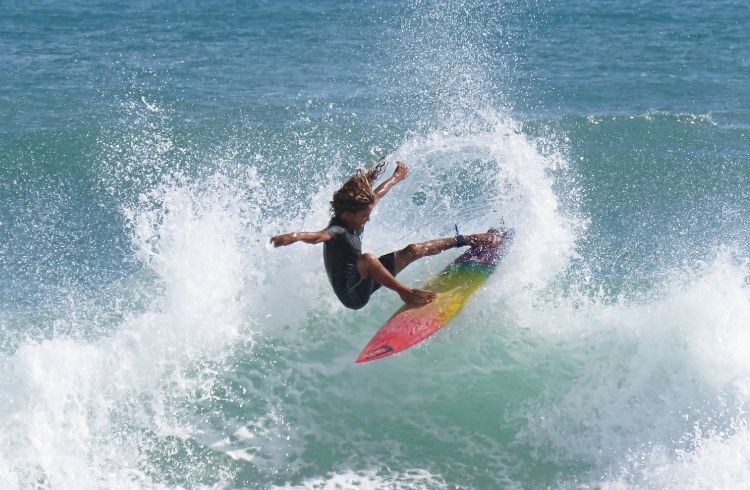 Photo © Supplied: Surfing the Caribbean
Photo © Supplied: Surfing the Caribbean
Listen Now
The World Nomads Podcast: Traveling during COVID-19
With COVID-19 still affecting the way we engage with the world, it’s important to plan wisely and travel responsibly, both for your own safety and that of the places you visit. But as we reengage with the world, you're likely planning vacations not far from home. World Nomads can help by providing travel safety tips, inspiring content, and travel insurance designed to protect you while traveling.
Before you buy a travel insurance policy, check your government travel warnings and health advice – there may be no travel insurance cover for locations with a government travel ban or health advice against travel.
What's in the episode
00:25 Thunder and lightening
02:30 The industries hit hard by COVID-19
05:38 Greg’s surf injury
08:04 Being separated from your pets
11:47 The future of surf camps
14:40 The story of Karma
16:29 Next episode
Quotes from the episode
"A lot of times I was getting depressed too because it was winter in Virginia, and I had just come from surfing every day in Costa Rica. Luckily I had a wetsuit there and a longboard, so I was able to surf because Virginia did not have the beaches closed. There were very few surfers, so it was easy to stay socially distance. And I just woke up each morning and said to myself to look at life as a cup half full, look at the benefits I had of being there, being with my parents who were in their 70s, so I was able to get quality time with both of them. I was able to get outside a lot just going on runs or biking or surfing or stand up paddleboarding, and that really made all the difference in my outlook over those last few months. - Greg
Who's on the show
Greg Gordon is the owner of CR Surf Travel Company. Greg grew up surfing the East Coast of the United States. Greg made his first trip to Costa Rica in 1996 and has planned hundreds of trips for clients and friends, written surf travel articles for Surfline, The Inertia, and The Tico Times. When he is not surfing, writing, or helping clients, he is helping at beach cleanups, playing guitar, “and just enjoying and appreciating the natural beauty” around him. Follow his adventures on Instagram @crsurf
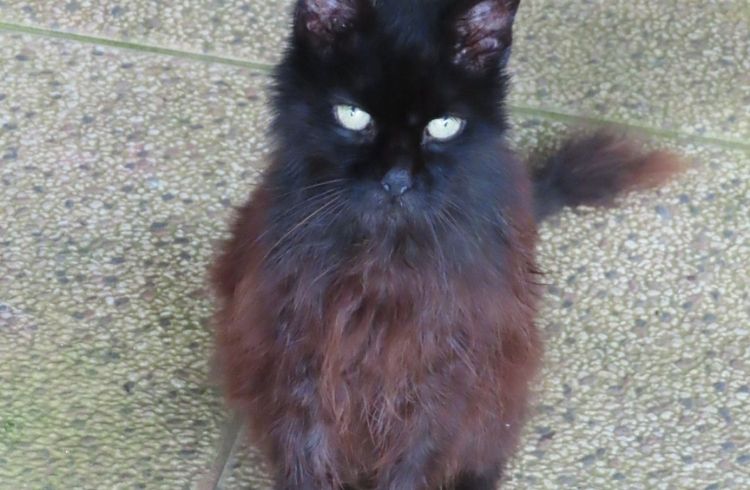
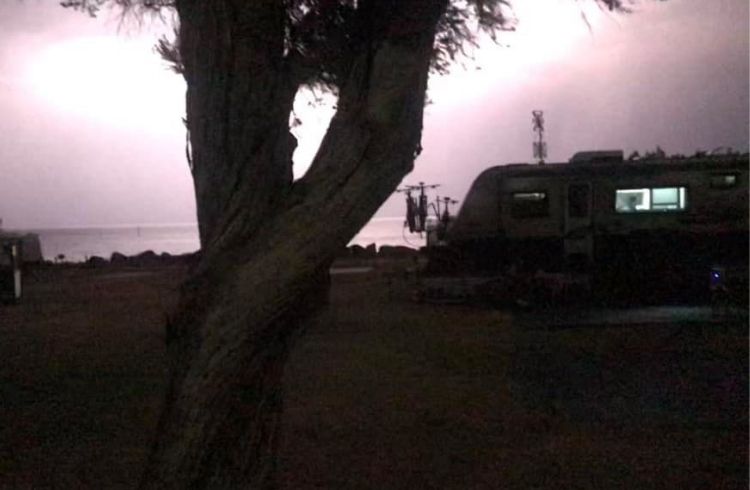
Resources & links
- Coronavirus and the travel industry - impact and recovery.
- Latest travel alerts and warnings.
- Which countries have open borders?
Help us spread the word
We’d love it if you could please share #TheWorldNomadsTravelPodcast with your Twitter followers and head over to Facebook and join the World Nomads Travel Podcast group.
If you liked this episode please head to Apple Podcasts and kindly leave us a rating, review, and of course, subscribe so you don’t miss an episode.
We use the Rodecaster Pro to record our episodes and interviews when in the studio, made possible with the kind support of Rode.
Kim: Greg Gordon runs a surf travel company in Costa Rica, maintains a cup half full approach…he’ll tell us about that and how COVID-19 has not only affected his business but challenged him personally.
Greg: The name of the company is CR Surf Travel Company. And, I am an expert on planning surf trips to Costa Rica, and as a licensed travel consultant in the United States, I also help clients all over the world plan trips to anywhere they want to go.
Kim: Do your parents say, "Is that a real job?" You're an expert in planning surf trips? That sounds awesome.
Greg: Yes, they do. For 12 years, I was a public school teacher teaching everything from 3rd grade, all the way up to 12th-grade web design and technology classes. And for a long time, I was running the site part-time and then teaching full-time. But in 2009, I earned my travel agent license and have been running it full-time since.
Kim: So you're living the dream, but, Greg, how has the pandemic affected your business, if at all?
Greg: Well, it's severely affected my business. At the beginning of March, I had about 20 clients that were expecting to make trips in the month of March and April. And by the middle of March, I was down to zero and was actually helping clients finding ways to leave the country that was in the middle of their trip. So, and then since April, for the next five months, I had a couple of requests who... surfers wanting to go visit Mexico because flights to Mexico were still open. But besides that in the last six months, I had no reservations. Only starting last month, I started to get more travel requests for Costa Rica now that their borders are going to be open to all US states on November 1st, and now I'm back up to about six clients that plan to travel within the next three months.
Kim: So how have you survived this period?
Greg: Interestingly enough, I was planning a trip, a surf trip to Morocco right as the pandemic was starting to close borders and due to a surfing injury, I had 15 stitches in my knee and another 5 in my foot. I had to cancel that trip due to the injury, but then Morocco shut down, and I was stuck in Virginia. I had flown to Virginia to visit my family and see my parents and because I could not get back to Costa Rica or go on that trip, I ended up at my parents' house. And so, that cut my expenses nearly down to zero. As an independent contractor in Virginia, I was allowed to file for unemployment. So I was able to go to get on unemployment benefits. And in those two ways, I was able to survive.
I also received an assistance loan from the US Small Business Administration, and that helped me pay off all my credit card debt and gave me a very low payment that I don't have to start making 'til next year. So financially, I've come out better since I've been able to pay off all my debt. And just that time at home, I was able to just focus on my website and my marketing and my social media presence and also just find some balance in working and time with my family.
Kim: But it must've been a whirlwind, a whole lot of pain there all at once: your business, you can't go on your trip, your injury, back living at home, the worries about finances. You must be feeling very relieved.
Greg: Yes, very much so. So at the time, I guess I was depressed. I had booked flights back to Costa Rica in April that was canceled in June that was canceled in August that was canceled. And luckily the airlines had that policy where you can use that cancellation flight as a credit for a future flight. But it was very frustrating, not really knowing when I'd be able to come back.
Added to that, I rent a property in Costa Rica. I have a cat that lives in Costa Rica, and I also own a small piece of land close by that I had to maintain. So, I had to worry about if my cat was going to survive. She's 17 years old. I still had to pay rent on my property here because the cat was living in it, and I paid a friend to help come over each day and feed the cat and take care of it.
But it was very traumatic. A lot of times I was getting depressed too because it was winter in Virginia, and I had just come from surfing every day in Costa Rica. Luckily I had a wetsuit there and a longboard, so I was able to surf because Virginia did not have the beaches closed. There were very few surfers, so it was easy to stay socially distance. And I just woke up each morning and said to myself to look at life as a cup half full, look at the benefits I had of being there, being with my parents who were in their 70s, so I was able to get quality time with both of them. I was able to get outside a lot just going on runs or biking or surfing or stand up paddleboarding, and that really made all the difference in my outlook over those last few months.
Kim: You touched on something there that is going to be in your favor after this horrid year that has been 2020. You mentioned surfing, so you'd be able to socially distance. From all the reading that we've done, all the interviews, chats, and so forth, people are looking for those experiences now. So, a surf camp would be right up there on someone's radar. Are you hearing that too or seeing that in bookings?
Greg: I am starting to see that in bookings. There are many benefits, physically and mentally, to surfing and just being out there on the water, it really clears my head. The saltwater kind of flushes me out of possible toxins I may have. Physical exercise helps build my immune system. And in general, I try to live healthier so I'm able to surf more, either by eating correctly, doing yoga and stretching, working, surfing more, just so I get better at it, that kept my mind busy and my body occupied.
So, what I'm hearing from travelers is that one, they've been stuck at home for a really long time, and they're aching to travel somewhere. Two, that the airlines are doing a better job on protecting travelers, requiring them to wear a mask, making sure, in the case of Costa Rica, that they have a negative COVID test before traveling, and also offering low fares and offering a chance to rebook the flight if something should come up.
So, now people are getting an opportunity to start traveling, and it's also getting colder in the United States and many places in the Northern hemisphere. So now they're thinking, "Okay, where can I go travel that has warm water, that doesn't have a large population along the coast, and that will give me a chance to catch a bunch of waves without a bunch of other surfers in the water."
Kim: So are you putting any COVID safety regulations in place alongside of what you've got there naturally?
Greg: Well, the surf camps that I work with, they've all been vetted. I know either the managers or the owners of these camps, and it starts out with the prevention of people that are coming in with COVID-19 that they have to have that negative test result. A lot of hotels that I've... and surf camps, they have what's called a touch-less check-in where everything's done over the phone or online. And then they also have more rigorous cleaning procedures in the room where everything is just infected. They're giving out personal soaps and shampoos rather than having to share it. So then that way that a new guest that comes into a room feels like that room is clean and disinfected.
I've also seen surf camps that have a lower number of groups that they take out for a lesson. It used to be maybe up to four or six surfers, and now the maximum is two or three. Luckily, we're surfing. Once you're out in the water, generally the length of your board is going to dictate how far you are away from another person, so that's going to allow for natural distancing as well.
So in those ways, the surf camps are better prepared to prevent anyone from getting sick while they're in Costa Rica.
Kim: Okay, so as we wrap up, how would you put 2020 into words?
Greg: I would call it a catalyst for change. I think that people are going to be more selective in the future where they want to go on a vacation and how they want to spend their time. And they don't want to waste money or time going to someplace without doing the research or arrive at a place and find out that they have to travel a long distance to be able to experience the natural beauty and the culture of a country they go to visit. So, I believe that as a surf travel consultant, I'm in a good position to educate my clients on the best places to go, the best times to visit, and how to maximize their time and their dollar while they're there visiting. So, I don't want to be negative and say, "It was horrible and traveling will never be as good as it was." I really think though that now people are just going to think more about their time when they travel and then look more carefully in the suppliers that are out there.
Kim: Well said. Well before we go, what's the name of your cat, and do you take her or him surfing?
Greg: Her name is Karma with a K.
Kim: Nice.
Greg: And, the story behind her, just really fast, is that she stowed away under my truck as I was doing a cross country trip from California to Cocoa Beach, Florida. And about five hours from my house, she crawled underneath my truck at a gas station when she was seven weeks old and rode in the spare tire wheel well all the way to Cocoa Beach, about five hours on the highway. So that's how she got the name, and then since then, she's been with me in Miami, Florida in Oakland, California, and now in Costa Rica.
Kim: Oh, how gorgeous. Well, give Karma a squeeze from us, and thanks for the chat, Greg.
Greg: Thank you very much, Kim, for offering me this opportunity to share my business with you, and I look forward to maybe visiting Australia one day soon.
Kim: Well, we've got some good surf here, so yeah, get over.
Greg: I know, I know. I can't wait.
Kim: We will have a cute photo of Karma in show notes.
Phil: Please remember to rate share and subscribe to the World Nomads Travel Podcast from wherever you get your favorite pods and reach out to us with your story by emailing podcast@worldnomads.com
Kim: Next week a couple of big announcements and a chat with Mike Corey, host of the BBC's ‘The Travel Show’ and star of the YouTube channel 'Fearless and Far'
Bye


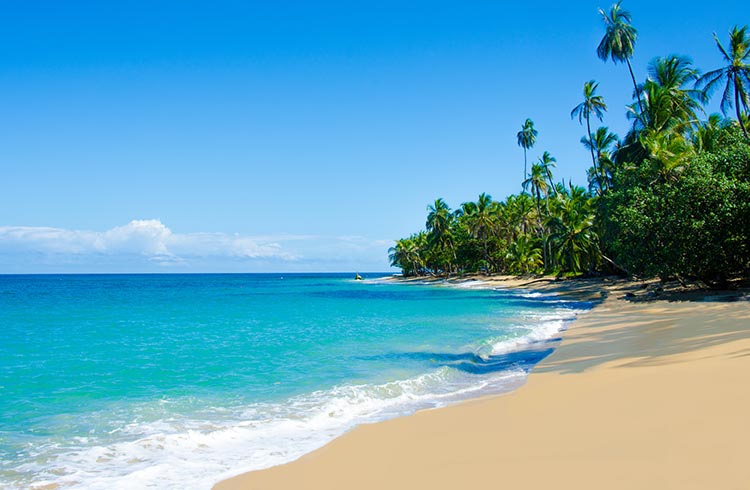
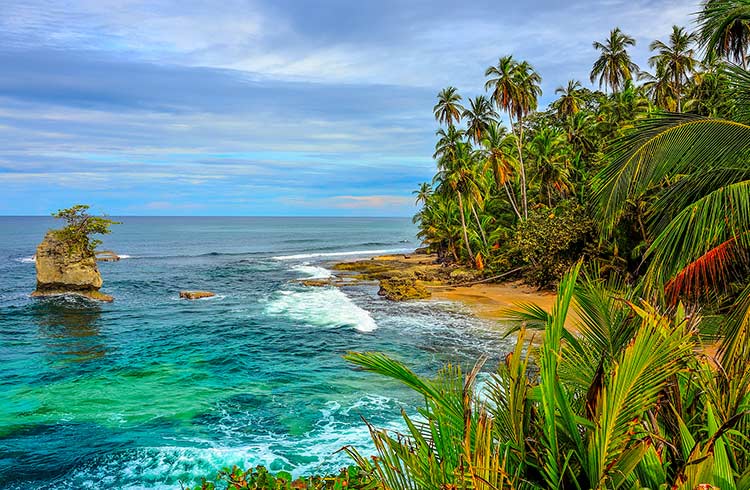
No Comments